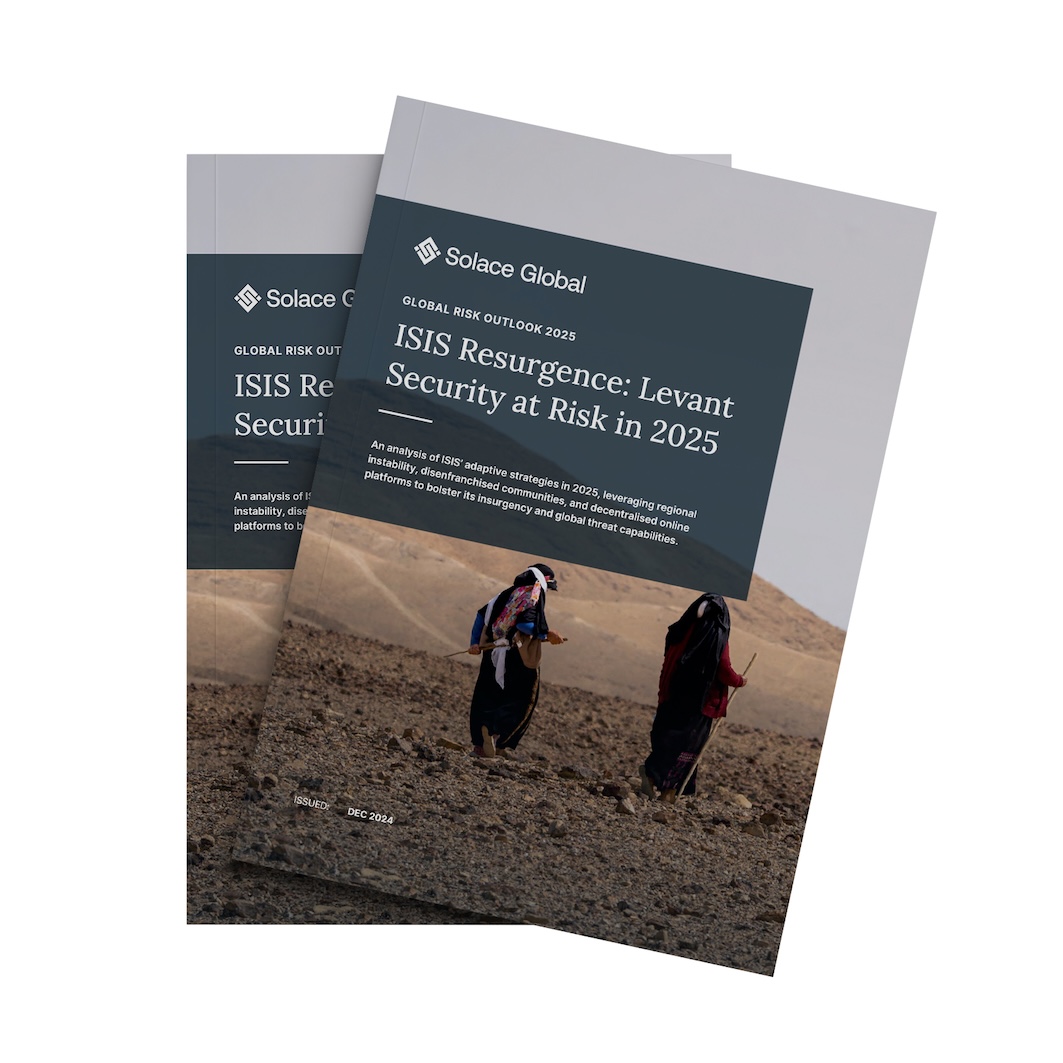ISIS Resurgence: Levant Security at Risk in 2025

What’s Fuelling ISIS’ Growing Threat in the Levant in 2025?
ISIS is adapting its strategies, exploiting regional instability, disenfranchised communities, and digital platforms to reignite its insurgency. From emboldened sleeper cells in the Levant to global recruitment campaigns driven by online propaganda, the group is poised to escalate its threat, signalling a pivotal security challenge for 2025.
How is ISIS Capitalising on Regional Instability to Regroup and Expand?
The phased U.S. withdrawal from Iraq and Syria, coupled with diverted counter-terrorism efforts due to the Israel-Hamas conflict and global geopolitical tensions, has provided ISIS with the operational space to regroup. Strengthened by disenfranchised communities and unmonitored regions, the group is increasingly emboldened, setting the stage for intensified attacks and expanded influence across the Levant.
The Impact of ISIS Resurgence on Regional and Global Security
ISIS has adapted to modern recruitment tactics, exploiting global migration flows and anti-immigration rhetoric to target vulnerable individuals. Using decentralised online platforms, the group spreads propaganda to radicalise and recruit, amplifying its reach beyond the Middle East into Western societies.
As security frameworks are weakened, ISIS is poised to expand its operations, destabilising the Levant and potentially coordinating attacks on a global scale. Its ability to exploit ungoverned spaces, shift tactics, and establish networks makes it a critical threat to international stability.
What’s inside:
- Regional Instability: How ISIS exploits the U.S. withdrawal, the Israel-Hamas conflict, and shifting alliances to regroup and expand its insurgency.
- Global Recruitment: The tactics used to radicalise and mobilise disenfranchised individuals via online platforms and migration flows.
- Operational Evolution: The resurgence of ISIS sleeper cells and their increasing capability to destabilise the Levant.
- Strategic Threats: The risks posed by ISIS’ growing global network, from the Levant to Africa, and its potential to coordinate international attacks.
Download the Full Report
